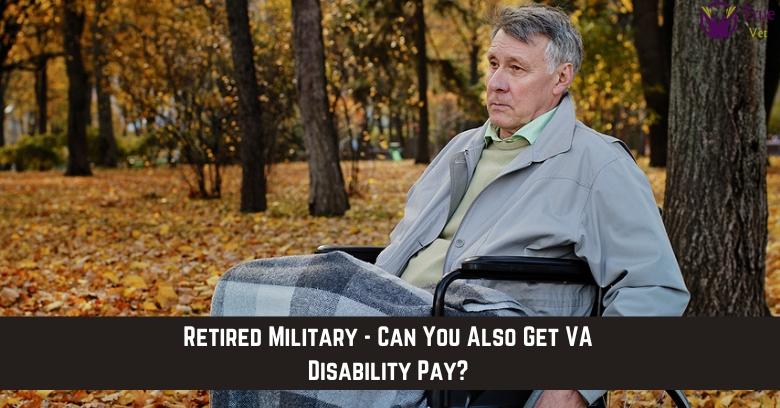Hawaii Veteran Financial Benefits
-
Retired Military Pay Income Taxes: There shall be excluded from gross income, adjusted gross income, and taxable income any compensation received in the form of a pension for past services.
-
State Taxes on U.S. Department of Veterans Affairs Military Disability Retired Pay: There shall be excluded from gross income, adjusted gross income, and taxable income any compensation received in the form of a pension for past services.
-
State Taxes on U.S. Department of Veterans Affairs Disability Dependency and Indemnity Compensation: Dependency and Indemnity Compensation (DIC) is a tax-free monetary benefit paid to eligible survivors of military service members who died in the line of duty or eligible survivors of Veterans whose death resulted from a service-related injury or disease.
-
Real Property Tax Exemptions: Real property owned and occupied as a home by any person who is totally disabled due to injuries received while on duty with the U.S. Armed Forces is exempt from all property taxes and other than special assessments.
-
Passenger Vehicle Tax Exemption for Certain Cars Furnished to Disabled Veterans: Passenger cars owned by persons who, by reason of their service disability, have been furnished such cars by the federal government and have been so certified by the Department of Veterans Affairs, shall be exempted from the tax herein provided for. This exemption shall not extend to vehicles used for commercial purposes, nor to more than one vehicle of any disabled Veteran.
Sales Tax:
-
Statewide: 4.0%
-
Counties: can levy an additional sales tax of no more than 0.5%
-
Current average sales tax (with local taxes included): 4.369%
RECREATION
Hunting Licenses: Active duty military personnel and their dependents stationed in Hawaii are considered to be residents for the purposes of obtaining a hunting license.
EDUCATION PROGRAMS
Hawaii Kupono Diploma Program for Wartime Veterans: The Hawaii State Department of Education (DOE) Kupono Diploma Program grants honorary high school diplomas to World War II, Korean, and Vietnam War-era Veterans, as well as individuals whose schooling was interrupted due to internment in relocation camps during World War II.
Hawaii Residency for Tuition Purposes (Veterans, Service Members, and Dependents): Non-resident Veterans, military Service members who are stationed in Hawaii and their dependents are eligible to attend colleges in Hawaii at the resident tuition rate.
Hawaii National Guard State Tuition Assistance Program: The Hawaii Army National Guard State Tuition Assistance Program (STAP) offers tuition waivers for eligible Service members who have completed Basic Combat Training and Advanced Individual Training. The waiver covers 100% of your tuition if you are a community college student, and 50% of your tuition if you are a four-year university student.
In order to be eligible for STAP, you must:
-Be pursuing an undergraduate degree
-Be enrolled in courses pertaining to that undergraduate degree
-Be a satisfactory performer in your assigned Hawaii National Guard unit
Hawaii Interstate Compact on Educational Opportunity for Military Children: It is the purpose of this compact to remove barriers to educational success imposed on children of military families because of frequent moves and deployment of their parents by:
-
Facilitating the timely enrollment of children of military families and ensuring that they are not placed at a disadvantage due to difficulty in the transfer of educational records from the previous school district or variations in entrance or age requirements
-
Facilitating the student placement process through which children of military families are not disadvantaged by variations in attendance requirements, scheduling, sequencing, grading, course content or assessment
-
Facilitating the qualification and eligibility for enrollment, educational programs, and participation in extracurricular academic, athletic and social activities
-
Facilitating the on-time graduation of children of military families
-
Providing for the promulgation and enforcement of administrative rules implementing the provisions of this compact
-
Providing for the uniform collection and sharing of information between and among member states, schools and military families under this compact
-
Promoting coordination between this compact and other compacts affecting military children
-
Promoting flexibility and cooperation between the educational system, parents and the student in order to achieve educational success for the student
HOUSING: THE FOLLOWING ARE THE SITES FOR VETERANS HOMES
Hawaii State Veterans Home at Milford
ELIGIBILITY FOR ADMISSION:
-
Veterans must be honorably discharged
-
Veterans must be residents of Delaware for at least three years
-
Have at least 180 days of active duty
-
Reserve/Guard Members eligible for retirement pay at 60
-
Require nursing home level care
EMPLOYMENT AND JOB TRAINING: VETERAN’S PREFERENCE
All honorably discharged Veterans can have 5 points added to any state employment examination scores. Those with a VA service-connected disability will get 10 points added to their score.
Hawaii State Employee Leave for Military Duty: State and city employees receive 15 days of military leave per calendar year. An additional 15 days from the succeeding year may be used provided that the officer’s or employee’s entitlement to fifteen working days under this section for the succeeding calendar year shall be canceled and the officer or employee shall so agree in writing. State and city employee on orders for Military unit training or active duty.
Hawaii State Employee Military Caregiver Leave: A State employee is eligible for up to 26 weeks of unpaid leave in a single 12-month period to care for your military relative (Spouse, Child, parent, or next of kin) if they have a qualifying serious illness or injury incurred in the line of duty on active duty.
Uniformed Services Employment and Reemployment Rights Act: Uniformed Services Employment and Reemployment Rights Act (USERRA) protect civilian job rights and benefits for Veterans and members of Reserve components. USERRA also makes major improvements in protecting service member rights and benefits by clarifying the law, improving enforcement mechanisms, and adding Federal Government employees to those employees already eligible to receive the Department of Labor assistance in processing claims.
BURIALS AND MEMORIALS
Please note that your preference regarding burial in a national cemetery and use of a headstone provided by VA should be documented and kept with your paperwork and medical records. Eligibility for burial in the cemetery is the same as for VA national cemeteries. Spouses and dependents may also be eligible for burial. There may be a fee for burial.
National Cemeteries include:
Honolulu: National Memorial Cemetery of the Pacific
HAWAII VA BENEFIT RESOURCES
Hawaii provides Veterans with a Regional Benefits Office and a VA Medical Center.
HAWAII VA REGIONAL BENEFITS OFFICE
-
Honolulu: Honolulu Regional Office
HAWAII VA MEDICAL CENTERS
-
Honolulu: VA Pacific Islands Health Care System
Important information for Hawaii Veteran Benefits:
For Veterans applying for VA benefits for the first time, you must submit a copy of your DD 214 (discharge paperwork). This will provide your discharge status, along with your full name, social security number, branch of service, and dates for which you served. Honorable and general discharges qualify a Veteran for most VA benefits.
You should always keep your paperwork, along with your medical records, in a safe place where you and your family can have access to them. It is imperative to have it in a location where it cannot be destroyed or tampered with, which includes a safe.
Your eligibility for most VA benefits is based upon discharge from active military service under other than dishonorable conditions. Active service means full-time service as a member of the Army, Navy, Air Force, Marine Corps, Coast Guard, or as a commissioned officer of the Public Health Service, the Environmental Services Administration or the National Oceanic and Atmospheric Administration.
Any Veteran discharged from the military under the conditions of “Dishonorable” due to bad conduct discharges issued by general courts-martial may bar VA benefits. Veterans in prison and parolees may be eligible for certain VA benefits. VA regional offices can clarify the eligibility of prisoners, parolees, and individuals with multiple discharges issued under differing conditions.







